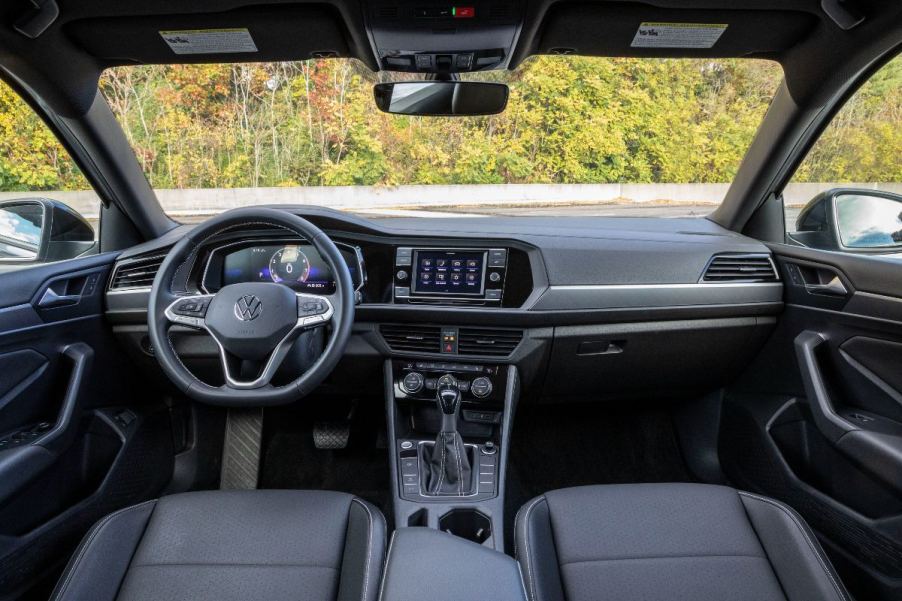
Volkswagen Has 2 Affordable Turbocharged Options
As economical cars strive for better fuel efficiency, their internal combustion engines continue shrinking. However, consumers make it clear with their buying decisions that they’re unwilling to putter around in a vehicle without pep. The turbocharged engines in two affordable Volkswagen models provide enough spirit to put a smile on your face.
2023 Volkswagen Jetta

The 2023 Volkswagen Jetta 1.5T compact sedan has a 158-hp turbocharged 1.5-liter inline-four engine. It gets an estimated 31 mpg in the city and 42 mpg on the highway. Those fuel economy estimates vary depending on your transmission choice: a standard six-speed manual or an optional eight-speed automatic.
In addition, the Jetta GLI Autobahn packs a turbocharged 228-hp 2.0-liter inline-four and a seven-speed dual-clutch automatic or the standard manual transmission. The sportier option lowers fuel economy to around 26 mpg in the city and 36 mpg on the highway.
The base-model Volkswagen Jetta 1.5T S, starting at $20,655, offers a comfortable ride and numerous advanced driver-assistance systems (ADAS) as standard equipment. They include:
- Rearview camera
- Forward collision warning with automatic braking and pedestrian detection
- Blind-spot monitoring
- Rear cross-traffic alert
Available driver-assist features include:
- Adaptive cruise control
- Lane-keep assist
- Automatic high-beam headlights
- Rain-sensing windshield wipers
The sportier 2023 Volkswagen Jetta GLI Autobahn, starting at $31,345, offers the same standard features as the base model. However, it boasts the more powerful 2.0-liter engine and a limited-slip differential to reduce wheel spin during acceleration.
2023 Volkswagen Taos
The 2023 Volkswagen Taos subcompact crossover, starting at $24,155, has the same 158-hp turbocharged 1.5-liter four-cylinder as the Jetta across all trim levels.
While front-wheel-drive models have an eight-speed automatic transmission, all-wheel-drive versions employ a dual-clutch seven-speed automatic. Fuel economy differs between the two drivetrains, with the FWD getting an EPA-estimated 28 mpg in the city and 36 on the highway and the AWD dropping to 25 mpg/32 mpg city/highway.
According to U.S. News, the 2023 Taos isn’t “the sportiest small crossover on the market,” but reviewers found it fun to drive with a gentle ride and responsive handling. The list of driver-assistance systems is similar to that of the Jetta. However, some standard ADAS features in the Jetta, such as forward collision warning and pedestrian detection, are optional in the Taos.
What makes turbocharged engines better?
Like many automotive advancements, race cars were the first to adopt turbocharger technology widely, U.S. News reports. As with today’s economy cars, race car engineers attempt to get the most power from the lightest-weight engines while burning the least amount of fuel, although it’s hard to relate to a Formula 1 car’s 1,000 hp and 4 mpg.
Anyway, turbochargers use an impeller (a type of fan or pump) to force more air into the engine’s intake system. More air allows the injectors to deliver more fuel without flooding the engine and fouling the spark plugs. That increase enables a smaller, lighter-weight powertrain to achieve suitable power while using less fuel than a naturally aspirated engine.



